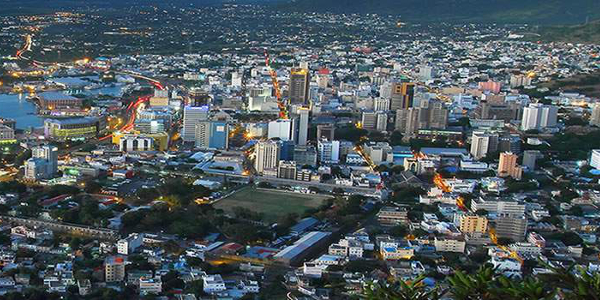
The growth in ultra-wealthy populations in Africa will outpace that of Europe and North America over the next decade, according to the 2017 edition of The Wealth Report launched in Africa by Knight Frank and Standard Bank Wealth and Investment.
The findings show that over the next decade Africa’s number of ultra-high-net-worth individuals will grow by 33%, after suffering a decline of 2% in 2015-16 due to tough market conditions.
Hotspots for growth include Ghana, Mauritius, Ethiopia, Tanzania, Uganda, Kenya, and Rwanda. The survey also shows that the majority of investors still feel under-invested in property and are looking to rebalance overall portfolios. Respondents’ preferred locations varied considerably depending on their domicile, with Australia, Africa and the US all cited as investment targets for 2017.
Deon de Klerk, head of wealth for Africa at Standard Bank, says it is increasingly important that individuals’ goals, requirements, time horizons, lifestyles and tolerance for risk are well understood and managed early.
Preservation of capital and generational wealth transfer considerations remain critical to an effective overall wealth strategy.
“There is little doubt that uncertainty prevails and wealthy investors are becoming increasingly concerned about their short-term wealth prospects. However, it is important not to panic and to rely on a goals-driven approach to successfully navigate the environment,” says de Klerk.
The total number of global ultra-wealthy – those with $30m or more in net assets – rose by 6,340 in 2016, taking the total to 193,490, according to the report. What’s more countries offering fiscal and political stability, as well as excellent quality of life, are expected to see strong growth over the next decade.
“It is imperative for countries in Africa to position themselves for attracting new business and investment to boost economic growth and improve financial inclusion. Therefore, while the ultra-wealthy in Africa only grew by 13% between 2006 and 2016, growth could be more than double that rate over the next decade as policy and regulatory frameworks make countries more conducive for doing business and creating prosperity,” says de Klerk.
The ultra-wealthy in Africa are also increasingly interested in leaving a legacy and providing more for society at large through philanthropic activities.
“A thorough understanding of each family’s quantum of available wealth to preserve for the sake of maintaining their lifestyle is required, so that legacy and philanthropic activities can be undertaken with higher levels of confidence. There is a definite move in Africa to give back to society due to the limited resources available to the poor. This is why a comprehensive and tailored solutions are so important,” says de Klerk.
Wealth Report – country-level wealth distribution in Africa, 2016
| Country | $10m+ | $100m+ | $100m+ | $1,000m+ |
| Algeria | 180 | 80 | 10 | 1 |
| Angola | 320 | 70 | 16 | 1 |
| Botswana | 100 | 30 | 2 | - |
| Congo (DRC) | 30 | 10 | 1 | - |
| Côte d’Ivoire | 100 | 30 | 2 | - |
| Egypt | 950 | 390 | 61 | 7 |
| Ethiopia | 150 | 40 | 4 | - |
| Ghana | 120 | 30 | 4 | - |
| Kenya | 370 | 120 | 18 | - |
| Mauritius | 170 | 50 | 5 | - |
| Morocco | 210 | 100 | 20 | 3 |
| Mozambique | 50 | 10 | 1 | - |
| Namibia | 120 | 30 | 3 | - |
| Nigeria | 620 | 170 | 14 | 4 |
| Rwanda | 30 | 10 | - | - |
| South Africa | 2,130 | 650 | 96 | 7 |
| Tanzania | 90 | 40 | 13 | 2 |
| Uganda | 60 | 20 | 7 | 1 |
| Zambia | 40 | 10 | 3 | - |
Comments
Post a Comment